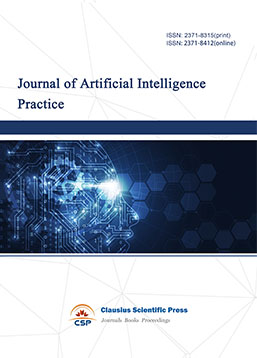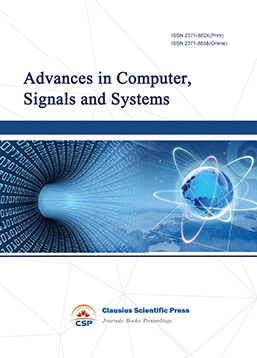Static Planning Analysis of Urban Energy Power System Based on Heuristic Algorithm
DOI: 10.23977/jeeem.2022.050205 | Downloads: 19 | Views: 1533
Author(s)
Xiangyu Hao 1
Affiliation(s)
1 State Grid Cangzhou Electric Power Supply Company, Cangzhou, Hebei, China
Corresponding Author
Xiangyu HaoABSTRACT
With the rapid development of cities in China, scientific management of urban energy systems has become a reality in order to ensure urban energy security, reduce energy costs, reduce environmental impact, and implement low-carbon city strategies. This paper aims to explore the static planning analysis of urban energy power system based on heuristic algorithm. Based on the analysis of the current situation of various types of power generation in the country, this paper takes the power system of Liaoning Province as the research object, and establishes the optimization objective function of the power system with the goal of the lowest total cost of power generation. First, through data collection and data calculation, the cost coefficients of the internal power generation cost, carbon emission cost, exhaust emission cost, land opportunity cost and reliability loss cost of various power generation energy sources are obtained. In this paper, several heuristic optimization algorithms are used to analyze the static design of urban power and multi-order network power systems, and the characteristics of the algorithms are summarized through the comparison and simulation of specific algorithms. Based on the characteristics of different-level classification resource allocation in multi-networks, this paper proposes a comprehensive algorithm to improve the system coordination speed and system performance.
KEYWORDS
Heuristic Algorithm, Urban Energy, Power System, Static AnalysisCITE THIS PAPER
Xiangyu Hao, Static Planning Analysis of Urban Energy Power System Based on Heuristic Algorithm. Journal of Electrotechnology, Electrical Engineering and Management (2022) Vol. 5: 33-39. DOI: http://dx.doi.org/10.23977/jeeem.2022.050205.
REFERENCES
[1] Srivastava I, Bhat S, Thadikemalla G, et al. A hybrid machine learning and meta-heuristic algorithm based service restoration scheme for radial power distribution system[J]. International Transactions on Electrical Energy Systems, 2021, 2021(April) :1-25.
[2] Ekinci S, Demiroren A, Hekimoglu B. Parameter optimization of power system stabilizers via kidney-inspired algorithm:[J]. Transactions of the Institute of Measurement and Control, 2019, 41(5):1405-1417.
[3] Erolu H, Can O, Ozturk A, et al. A Novel Grey Wolf Optimizer Based Load Frequency Controller for Renewable Energy Sources Integrated Thermal Power Systems[J]. Electric Power Components and Systems, 2022, 49(15):1248-1259.
[4] Diab A A Z, Sultan H M, Kuznetsov O N. Optimal sizing of hybrid solar/wind/hydroelectric pumped storage energy system in Egypt based on different meta-heuristic techniques[J]. Environmental Science and Pollution Research, 2020, 27(26):32318-32340.
[5] Nawaz U, Malik T N, Ashraf M M. Least‐cost generation expansion planning using whale optimization algorithm incorporating emission reduction and renewable energy sources[J]. European transactions on electrical power engineering, 2020, 30(3):e12238.1-e12238.21.
[6] Barik S, Das D. Impact of FFC distributed generations in a DNR in the presence of renewable and load uncertainties by mixed-discrete particle swarm-based point estimation method[J]. Renewable Power Generation, IET, 2019, 13(9):1431-1445.
[7] Ghazvini A M, Olamaei J. Optimal sizing of autonomous hybrid PV system with considerations for V2G parking lot as controllable load based on a heuristic optimization algorithm[J]. Solar Energy, 2019, 184(MAY):30-39.
[8] Abdulkhader H K, Jacob J, Mathew A T. Robust type-2 fuzzy fractional order PID controller for dynamic stability enhancement of power system having RES based microgrid penetration[J]. International Journal of Electrical Power & Energy Systems, 2019, 110(SEP.):357-371.
[9] Veerasamy V, Wahab N, Ramachandran R, et al. Recurrent network based power flow solution for voltage stability assessment and improvement with distributed energy sources[J]. Applied Energy, 2021, 302(211):117524.
[10] Sahu P R, Hota P K, Panda S. Modified whale optimization algorithm for coordinated design of fuzzy lead‐lag structure‐based SSSC controller and power system stabilizer[J]. European Transactions on Electrical Power, 2019, 29(4):e2797.1-e2797.21.
[11] Banerjee A, Chattopadhyay S, Gavrilas M, et al. Optimization and estimation of reliability indices and cost of Power Distribution System of an urban area by a noble fuzzy-hybrid algorithm[J]. Applied Soft Computing, 2021, 102(1):107078.
[12] Qais M H, Hasanien H M, Alghuwainem S. Whale optimization algorithm-based Sugeno fuzzy logic controller for fault ride-through improvement of grid-connected variable speed wind generators[J]. Engineering Applications of Artificial Intelligence, 2020, 87(Jan.):103328.1-103328.13.
[13] Baziar A, Akbarizadeh M R, Hajizadeh A, et al. A Robust Integrated Approach for Optimal Management of Power Networks Encompassing Wind Power Plants[J]. IEEE Transactions on Industry Applications, 2020, PP(99):1-1.
[14] Al-Falahi M, Jayasinghe S, Enshaei H. Hybrid algorithm for optimal operation of hybrid energy systems in electric ferries[J]. Energy, 2019, 187(Nov.15):115923.1-115923.15.
[15] Abbassi A, Mehrez R B, Abbassi R, et al. Improved off‐grid wind/photovoltaic/hybrid energy storage system based on new framework of Moth‐Flame optimization algorithm[J]. International Journal of Energy Research, 2022, 46(5):6711-6729.
[16] Javed M Y, Hasan A, Hafeez A, et al. Water Cycle Algorithm (WCA): A New Technique to Harvest Maximum Power from PV[J]. Cybernetics and Systems, 2022, 53(1):80-102.
[17] Hao D, Ren X, Mohammed A S. Optimal Design of Electric Vehicle Parking Lot based on Energy Management Considering Hydrogen Storage System and Demand Side Management[J]. The Journal of Energy Storage, 2021, 42(2):103045.
[18] Dokuz A S, Demolli H, Ecemis A, et al. Location‐based optimal sizing of hybrid renewable energy systems using deterministic and heuristic algorithms[J]. International Journal of Energy Research, 2021, 45(11):16155-16175.
| Downloads: | 5838 |
|---|---|
| Visits: | 319085 |
Sponsors, Associates, and Links
-
Power Systems Computation

-
Internet of Things (IoT) and Engineering Applications

-
Computing, Performance and Communication Systems

-
Journal of Artificial Intelligence Practice

-
Advances in Computer, Signals and Systems

-
Journal of Network Computing and Applications

-
Journal of Web Systems and Applications

-
Journal of Wireless Sensors and Sensor Networks

-
Journal of Image Processing Theory and Applications

-
Mobile Computing and Networking

-
Vehicle Power and Propulsion

-
Frontiers in Computer Vision and Pattern Recognition

-
Knowledge Discovery and Data Mining Letters

-
Big Data Analysis and Cloud Computing

-
Electrical Insulation and Dielectrics

-
Crypto and Information Security

-
Journal of Neural Information Processing

-
Collaborative and Social Computing

-
International Journal of Network and Communication Technology

-
File and Storage Technologies

-
Frontiers in Genetic and Evolutionary Computation

-
Optical Network Design and Modeling

-
Journal of Virtual Reality and Artificial Intelligence

-
Natural Language Processing and Speech Recognition

-
Journal of High-Voltage

-
Programming Languages and Operating Systems

-
Visual Communications and Image Processing

-
Journal of Systems Analysis and Integration

-
Knowledge Representation and Automated Reasoning

-
Review of Information Display Techniques

-
Data and Knowledge Engineering

-
Journal of Database Systems

-
Journal of Cluster and Grid Computing

-
Cloud and Service-Oriented Computing

-
Journal of Networking, Architecture and Storage

-
Journal of Software Engineering and Metrics

-
Visualization Techniques

-
Journal of Parallel and Distributed Processing

-
Journal of Modeling, Analysis and Simulation

-
Journal of Privacy, Trust and Security

-
Journal of Cognitive Informatics and Cognitive Computing

-
Lecture Notes on Wireless Networks and Communications

-
International Journal of Computer and Communications Security

-
Journal of Multimedia Techniques

-
Automation and Machine Learning

-
Computational Linguistics Letters

-
Journal of Computer Architecture and Design

-
Journal of Ubiquitous and Future Networks


 Download as PDF
Download as PDF